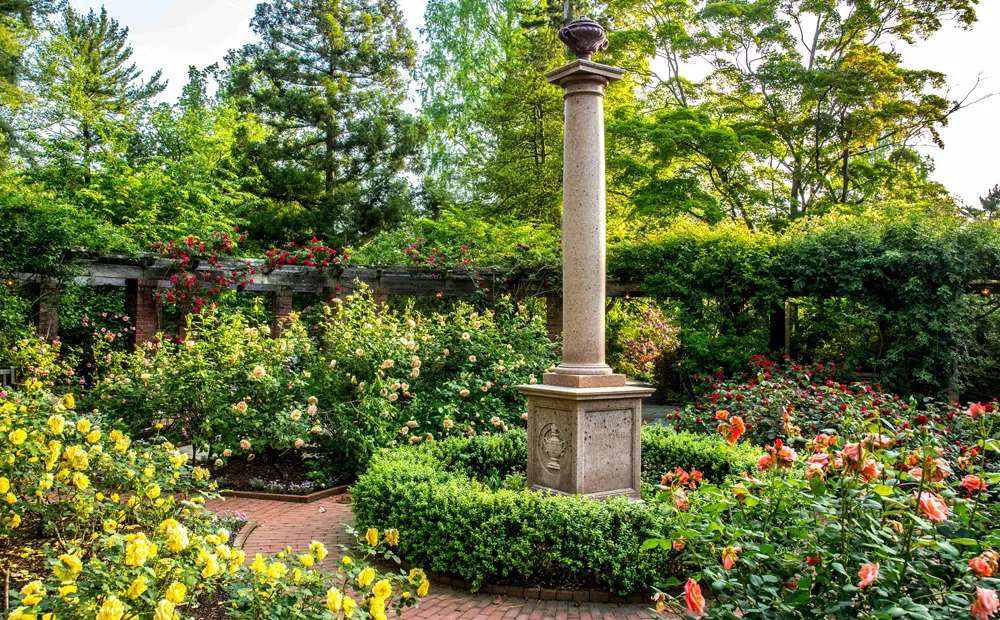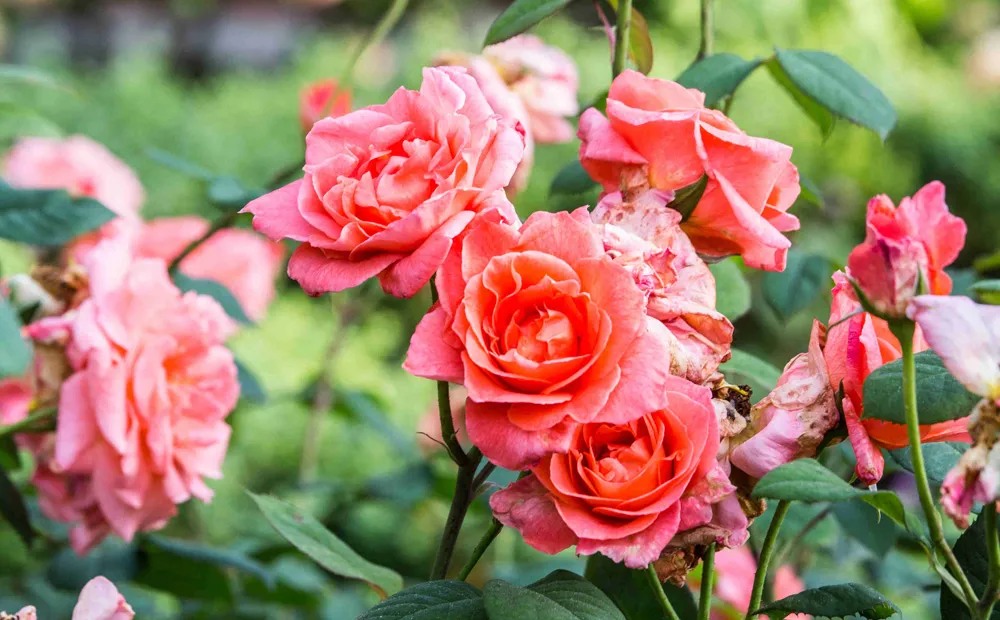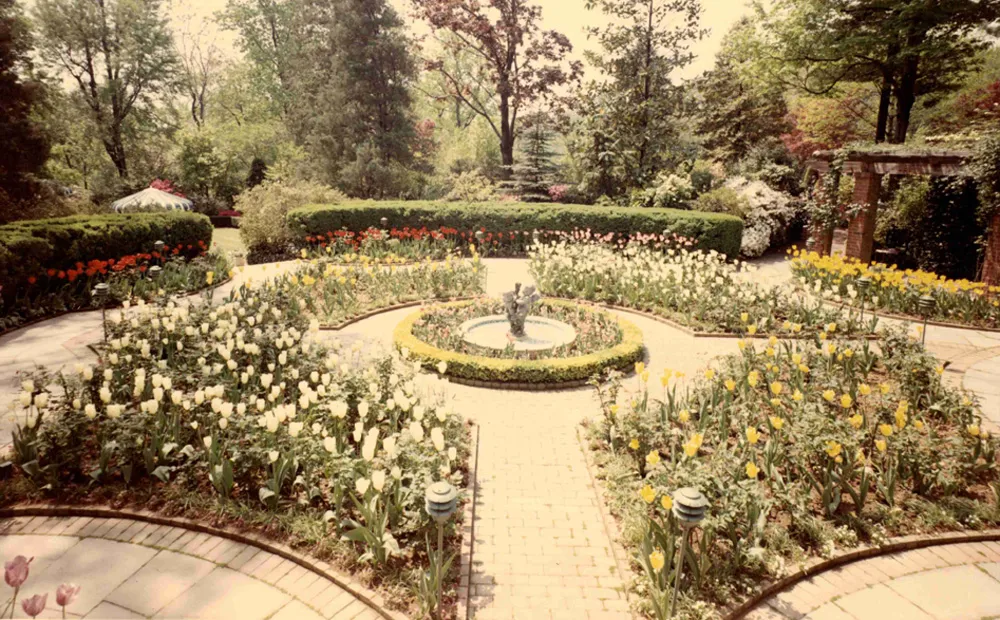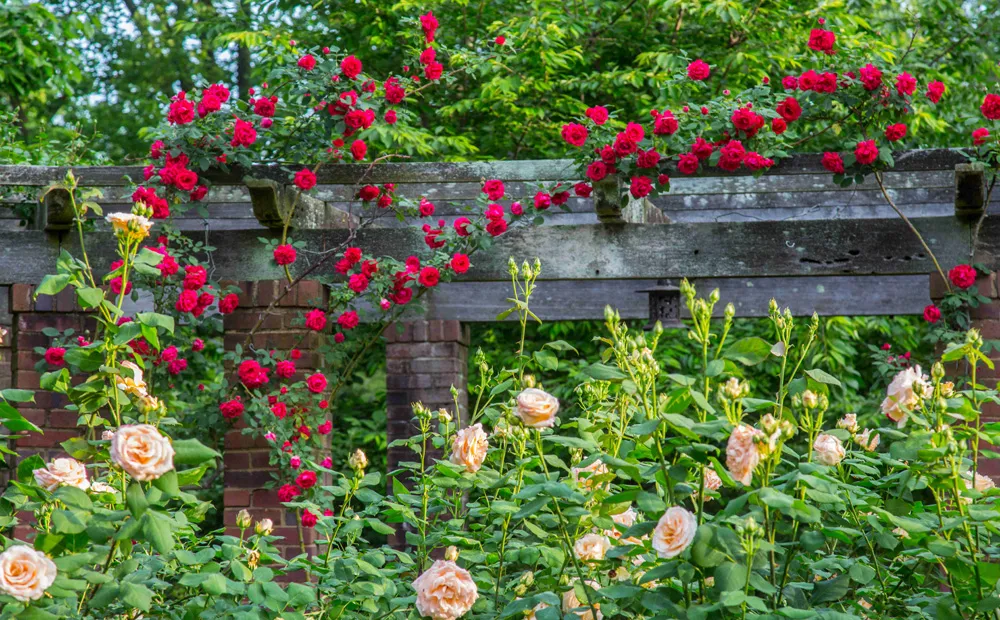Rose Garden
The rose garden offers a feast for the senses from spring through late fall. Only steps from the French parterre, fifteen cultivars of roses delight the eye with a visual bouquet—pink, red, coral, white, and yellow.
Transformation
In 1956 landscape architect Perry Wheeler, noted for helping to design the White House rose garden, adapted this space to Marjorie Post’s discerning taste. He kept the pergola, the stone steps leading to the putting green, and the round shape, and picked up the pergola’s brickwork in his intricate trademark paving. In the center sit four crown-shaped rose beds, each planted with a single cultivar of floribunda rose. Boxwood hedges mirror the shape of the pergola, thus completing this circular “room.”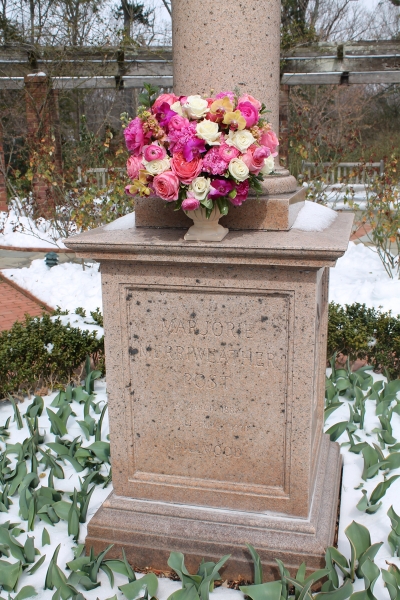
A fitting memorial
As you stroll the tranquil space, stop and pay tribute to Marjorie Post, who, with her daughters, chose this garden as her final resting place. In November 1974, a little over a year after her death, her ashes were placed in the base of the granite monument in the center of the garden. At the top is an antique urn carved from rare deep purple porphyry. Around the monument, seasonal flowers bloom–tulips in the spring, colorful annual flowers in the summer, and chrysanthemums in autumn. The base bears Post's coat of arms including the engraved Latin phrase, “In me mea spes omnis” which translates to, “All my hopes rest in me”—an apt motto for this generous and independent woman.
Until his death, her longtime employee, Gus Modig, laid flowers at this site in honor of Marjorie Post's birthday, a tradition that continues at Hillwood today.


